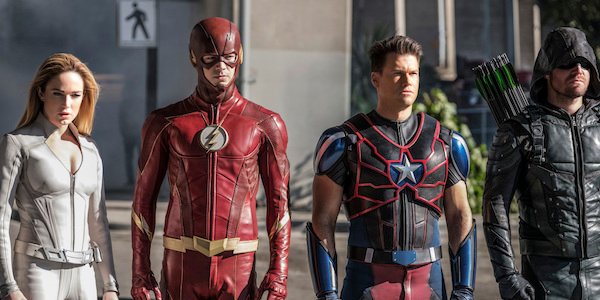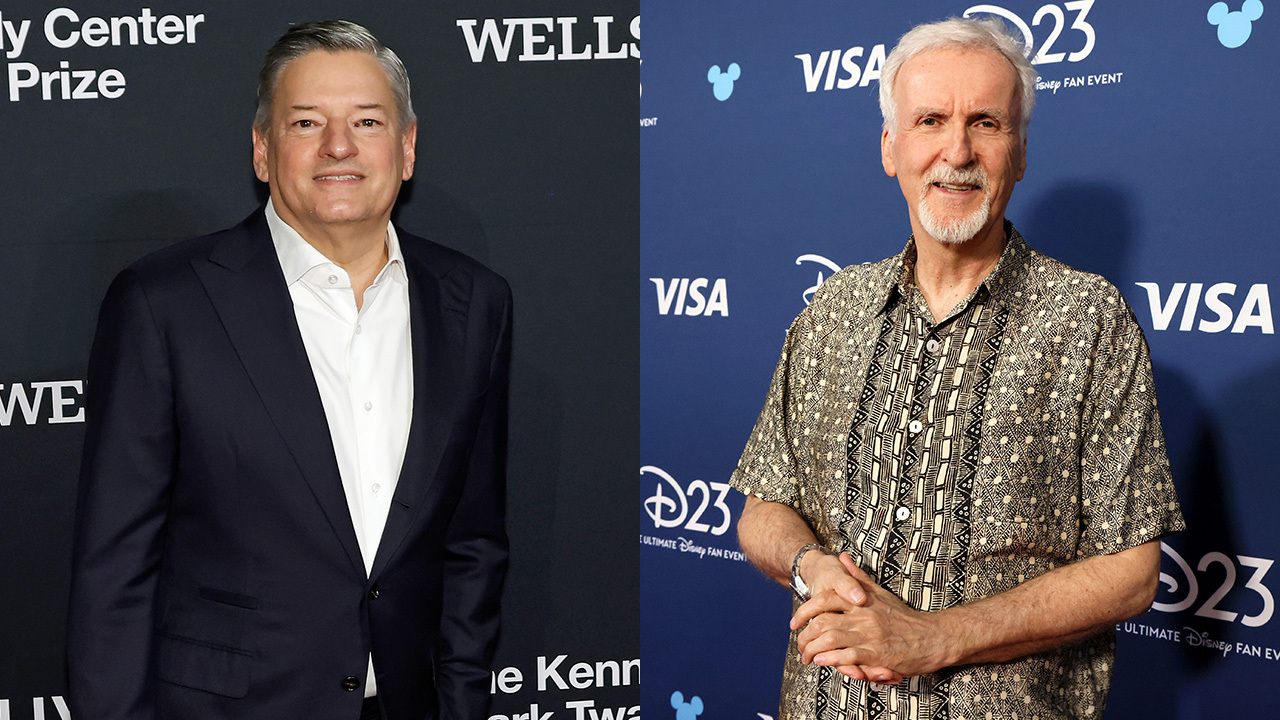Why The Flash And Other Arrow-verse Shows Need To Dramatically Reduce Episode Counts

My innate fandom automatically makes me want to see as much comic book television as possible, but many vocal viewers agree the past few years have caused a "less is more" criticism to be pointed at many comic shows. Nowhere is it more prevalent than in The CW's ever-growing Arrow-verse, which gave us around 80 hours of occasionally bloated programming in 2017. One way The CW could fix this over-saturation problem is cutting down Arrow & Co.'s episode counts and shortening each series' storylines. Here's how and why it would work.
22 episodes is just too much for almost any current shows to put out on an annual basis, at least in a way that keeps the majority of viewers happy. Anytime a season of Arrow or The Flash begins, fans already have a very informed idea of how the seasons' beats will be laid out, even if the details behind those beats aren't quite as easy to foretell. Plus, a lot of silly and unbelievable situations occur when superhero shows are regularly developing overarching plots that have to be stretched out across so many months of these characters' lives.
If Arrow, The Flash and Supergirl all had the same number of episodes as Legends of Tomorrow, or even fewer, imagine how much tighter each show's storytelling would be. How much fluff would presumably get excised from the timelines. Not that Legends of Tomorrow couldn't do with its own installment limitations. (Adhering to its historical-adventure-of-the-week format doesn't excuse the show from missteps.) As well, adjusting to a small episode count would allow for big changes to be implemented in the various plot mechanics and formatting. We obviously wouldn't have to wait as long for reveals, and they could ideally show up faster and more effectively.
Fewer episodes would also mean smaller budgets, which producers might just be interested in. Sure, The CW wouldn't be recouping as much in ad revenue, but who's to say shorter seasons wouldn't incite millions more people to tune in and keep up more with the Arrow-verse shows instead of the hundreds of other options each year. Bigger audiences would also probably be the logical outcome if the shows' creative teams were allowed to devote more time and money to a regular pattern of crossover episodes, which have almost always been the respective series' most-watched episodes, as it went with this year's "Crisis on Earth-X." Shorter seasons, combined with more frequent team-ups, would probably be the network's best plan to boost the combined ratings and viewerships. It's drastic, maybe, but still stocked with possible advantages that other methods wouldn't have.
Even if the shortened-season idea doesn't strike everyone so positively, a possibly worthy alternative would be dividing the Arrow-verse's seasons into distinct arcs with clear beginnings and endings, similar to how Agents of S.H.I.E.L.D. revamped itself for Season 4. It's an approach that clearly has more in common with actual comic books than TV shows, and bring multiple, fleshed-out mini-arcs to The Flash and other super-shows would force creative teams to make each and every moment count, and without having to worry about illogically postponing narrative points until midseason finales. It could also be a way to keep the Arrow-verse going year-round, if The CW would choose to air one or more shows' arcs during the summer season, instead of keeping all the shows parallel in the fall lineup.
It's not like the Arrow-verse's series are the only comic book shows out there that could do with some time in the cutting room. Marvel's Netflix shows have also been criticized for spinning wheels during their 13-episode seasons. Hell, even the eight-episode crossover series The Defenders got pegged for being too long. (ABC's Inhumans, meanwhile, could have been a single installment and no one would have blinked.) Still, Arrow and The CW's other shows set the biggest bar for episode counts for comic TV, so they should also set the bar for cutting the fat out.
Supergirl will return to The CW for the second half of Season 3 on Monday, January 15, at 8:00 p.m. ET. Meanwhile, The Flash will be back on Tuesday, January 16, at 8:00 p.m. ET, just before the series premiere of the new DC adaptation Black Lightning, with Legends of Tomorrow currently without a midseason premiere date. Finally, Arrow will continue Season 6 on Thursday, January 18, at 9:00 p.m. ET. Let us know what you guys think of this idea, and to see all the other shows that will be returning (and debuting) in early 2018, head to our 2018 midseason premiere schedule.
CINEMABLEND NEWSLETTER
Your Daily Blend of Entertainment News

Nick is a Cajun Country native and an Assistant Managing Editor with a focus on TV and features. His humble origin story with CinemaBlend began all the way back in the pre-streaming era, circa 2009, as a freelancing DVD reviewer and TV recapper. Nick leapfrogged over to the small screen to cover more and more television news and interviews, eventually taking over the section for the current era and covering topics like Yellowstone, The Walking Dead and horror. Born in Louisiana and currently living in Texas — Who Dat Nation over America’s Team all day, all night — Nick spent several years in the hospitality industry, and also worked as a 911 operator. If you ever happened to hear his music or read his comics/short stories, you have his sympathy.









